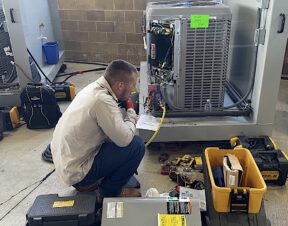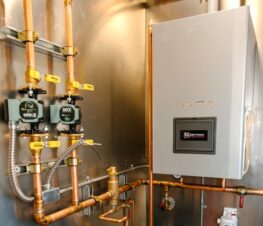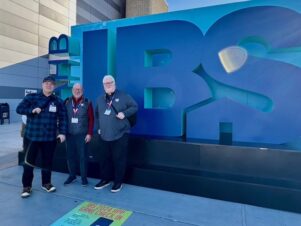
Hydronic heating systems in general are intimidating to look at. Now I’m not saying when you, the professional, enter a mechanical room that you are intimidated but, put yourself in the shoes of the end user. The immensely intelligent Robert Bean [healthyheating.com], says it nicely when said like this: “One of the things people like about a forced air system is that they have a comfort level with what it looks like — a furnace looks like a furnace, a condenser looks like a condenser…they're in an enclosure so the homeowner doesn't have to look at any of the inner workings — it looks like an appliance.” Does your latest hydronic creation look like an appliance?
It seem as though I’ve been telling this same story for a while now. After all, I did just return from a troubled hydronic system that decided it was not going to circulate any water today….through two of its three system pumps….for reasons only god and our wives know. Admit it, your wife knows everything. Mine does, just ask her.
Robert Bean has a really good point in my opinion. Look, for my money I too like the looks of what appears to be a functional piece of art fastened to the walls of the mechanical room. This type of “applied” or “kinetic” art is often only understood by a select few, which like most art aficionados, have taken the time to study it and understand what is intended by the piece. That’s not a skill possessed by most homeowners though so I don’t consider my work to be art. I have never sold on the benefit I bring to the cocktail party so the homeowner might ask their guests down to the basement to view my piping and boiler handiwork.
Back to my story… The one I stood in front of today could be called an appliance, yeah if NASA had built it, and even then it would probably still have been tucked away in a remote room somewhere only to be accessed by the guy who designed it…because who else would know what the heck was going on? And to that point I think it’s exactly the opposite direction we should be moving. There are a few products available that address this but, the real change and opportunity has to come from and be created by ourselves.
I feel strongly that our industry as a whole would benefit from the creation of, employment and enforcement of standards and codes that govern the proper design and installation of the complex and highly technical systems we are working with today. Local authorities will have to enforce these codes/standards to ensure our customers they are getting what is needed to get the job done. Of course this opens the door to more training for all, including those on the inspection side of the toolbox but we all stand to come out of this better off than we are now. Our teachings stand chance to become more unified with a solid base of information such as a set of codes and maybe one day the skill and knowledge gap may start to tighten for the benefit of our customers and the products we provide them.
There will soon be a code in place (it’s written already) once finalized and adopted that will have us all working on a level playing field. Maybe then we will see things tidy up a bit; look more like the appliance our customers are more comfortable with. After all, wouldn’t the end product be easier to understand service and sell?
Education will always play a large role in our industry. Having something more than past experiences and trial by fire to work with, in my opinion, can only help us all.




Join the conversation: